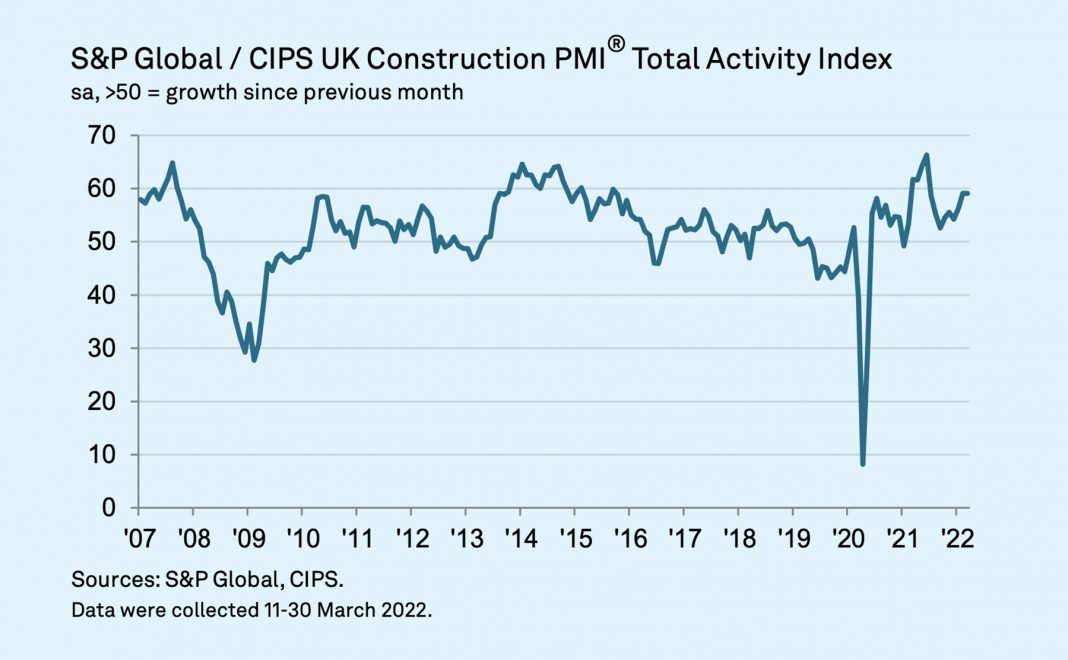A continued rise in construction output last month was offset by the combined impact of inflationary pressures and the war in Ukraine which drove industry confidence down to the weakest since October 2020, according to the latest figures.
Tim Moore, economics director at S&P Global, which compiles the survey said: “Commercial projects helped keep construction growth at its highest level since last summer as clients boosted spending in response to the roll back of pandemic restrictions. Civil engineering also fared well in March as work on major infrastructure contracts underpinned growth. Residential work found itself in the slow lane, however, as some firms noted that greater caution crept into spending decisions.
“The construction recovery looks set to continue in the near-term as order books improved at the fastest pace for seven months in March. Input buying and job creation in the sector also remained indicative of strong underlying momentum.
“Escalating fuel, energy and commodity prices led to the fastest rise in costs for six months. Intense inflationary pressures appear to have unnerved some construction companies. Business optimism slipped to its lowest since October 2020 on concerns that clients will cut back spending in response to rising prices and heightened economic uncertainty.”
Duncan Brock, group director at the Chartered Institute of Procurement & Supply, said: “A heartening result in March overall where new order levels were the highest since August last year, but not all the sub-sectors offered an equal contribution to output this month. Commercial projects were the most abundant with the strongest rise in almost a year, but residential building became the laggard of the pack as affordability concerns were a factor in holding back progress particularly in new housing and refurbishment work.
“The crippling rise in inflation ramped up again as transport and raw materials went up in price. Longer wait times for deliveries were reported by a third of supply chain managers. Construction companies are braced for more disruption on the horizon as a result of the Ukraine conflict. The rise in purchasing demand fed into higher costs for materials already in short supply as energy hikes also impacted on business costs.
“With these severe challenges, it is no surprise that business optimism for the months ahead has been affected and fell to levels last seen in October 2020. The sector is facing a number of roadblocks as levels of job creation were also held back with the ongoing skills shortage and lack of builders.”











